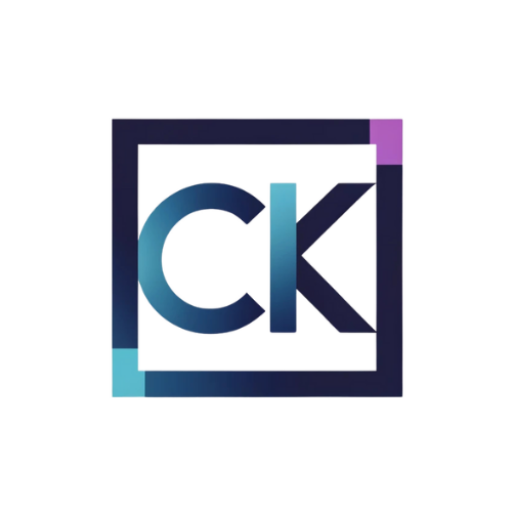Anúncios
In today’s highly competitive job market, the ability to master the art of interviewing can be a significant factor that sets you apart from numerous other candidates. As the world has shifted dramatically with the rise of remote work, virtual interviews have become increasingly popular. Understanding how to navigate this modern format is not just beneficial but crucial to your success. In this guide, we will delve into effective strategies for virtual interviews, offering practical tips designed to help you shine in this digital environment.
One of the essential steps in preparing for a virtual interview is ensuring you have a reliable technology setup. This includes a stable internet connection, a functioning camera, and clear audio. A poor connection can lead to interruptions and miscommunications, which create a negative impression on interviewers. It’s advisable to test your technology well in advance, ideally several days before the interview, to avoid any technical hiccups on the day of your important meeting.
Additionally, choosing an appropriate environment is essential when participating in a virtual interview. Aim to select a clean, quiet space with minimal distractions. A cluttered background can be distracting and unprofessional, negatively impacting the impression you make. Consider enhancing your environment with good lighting and a neutral backdrop that will help you maintain focus and present yourself in the best light possible, thus enhancing your overall appeal as a candidate.
As you prepare for the interview, invest time in researching the company and the specific role you’re applying for. Gaining a deep understanding of the company’s mission, values, and culture can allow you to tailor your responses effectively during the interview. This knowledge will enable you to demonstrate your genuine interest in the position and the organization. Employers keenly appreciate candidates who exhibit a strong understanding of their organization and align closely with its goals and objectives.
Practicing common interview questions is another critical preparation step, particularly in virtual settings. While many questions remain traditional, the format in which they are asked may differ slightly in a virtual context. Prepare for both behavioral and situational questions, as these questions help employers assess your past experiences and problem-solving abilities. Rehearsing out loud can significantly help you articulate your thoughts more clearly and enhance your confidence as you head into the interview.
Anúncios
Another crucial aspect of virtual interviews is your body language. Although the interview isn’t face-to-face, your non-verbal cues continue to hold substantial importance. Make sure to maintain eye contact by looking at the camera rather than the screen itself. Maintaining an upright posture conveys confidence and helps you engage in active listening, indicated by nodding and responding appropriately to the interviewer’s comments. This attentiveness can create a more engaging and dynamic exchange.
During the interview, being mindful of your speech and tone is critical. Clear, confident communication can significantly impact how you present yourself to the interviewer. Speak at a moderate pace and articulate your words to ensure you are easily understood by your interviewer. This is particularly crucial in a virtual setting, where poor audio quality may lead to misunderstandings and confusion during the conversation. Avoid using filler words as they can detract from your professionalism and the overall impact of your responses.
An effective strategy in virtual interviews is to utilize the STAR method when responding to behavioral questions. This approach allows you to structure your responses by detailing the Situation, Task, Action, and Result that relate to your relevant experiences. This method keeps your answers organized while succinctly highlighting your achievements, making a memorable impression on your interviewer regarding your qualifications and capabilities.
Do not underestimate the importance of asking insightful questions at the end of the interview. This not only demonstrates your engagement but also provides you with an opportunity to discern if the company aligns with your own career aspirations and values. Prepare a few thoughtful questions regarding the company culture, expectations for the role, or potential growth opportunities within the organization. This initiative will reflect positively on your interest and enthusiasm for the position and enhance overall impression.
In the context of virtual interviews, it’s also essential to pay special attention to your appearance. Dress professionally as you would for an in-person interview to project the right image. Your attire contributes significantly to the first impression you make, and looking polished can enhance your confidence. Avoid distractions by steering clear of busy patterns, and instead, opt for solid colors that convey professionalism and competence in your online presence.
Additionally, be prepared for unexpected scenarios. Technical difficulties can arise at any time during a virtual interview, causing potential disruptions. If problems do occur, it’s vital to stay calm and composed, calmly communicating the issue to your interviewer. Demonstrating grace under pressure illustrates not only your adaptability but also your problem-solving skills which many employers highly value in potential candidates.
Following the interview, it’s crucial to follow up with a thank-you email. This gesture helps express your sincere appreciation for the opportunity and reinforces your interest in the role you interviewed for. In your message, consider briefly reiterating a key point discussed during the interview to remind the interviewer of your qualifications and fit for the role. This simple act can significantly set you apart from other candidates who may not take this essential step.
Furthermore, reflecting on your performance after the interview is vital. Take the time to consider what went well during the discussion and identify areas for improvement along the way. This level of self-assessment contributes positively to refining your approach for future interviews and helps you cultivate essential skills. Continuous learning and self-evaluation are hallmark components of both personal and professional growth in any career pathway.
Lastly, embrace the opportunity to practice with mock interviews. This proactive approach can dramatically reduce anxiety and improve your overall performance. Invite a friend or family member to conduct a mock interview with a variety of common questions and scenarios you might encounter. Receiving consistent feedback can boost your confidence and provide you with valuable insights that are beneficial before the actual interview experience.
In summary, navigating virtual interviews demands specific strategies tailored to this unique format of communication. From ensuring that your technology works smoothly to paying careful attention to your interview environment, each detail contributes significantly to the overall impression you create during the interview process. Prepare thoroughly, practice your communication skills actively, and remember to follow up professionally and promptly after the interview.
By focusing on these critical aspects of preparation and execution, you can greatly enhance your odds of standing out in today’s highly competitive job market. Embrace the opportunities that come with virtual interviews, understanding that effective communication and a positive demeanor can indeed make a lasting impact. With the right preparation, an open mindset, and a genuine enthusiasm for the role, you can excel in your next virtual interview and take a meaningful step toward advancing your career.



